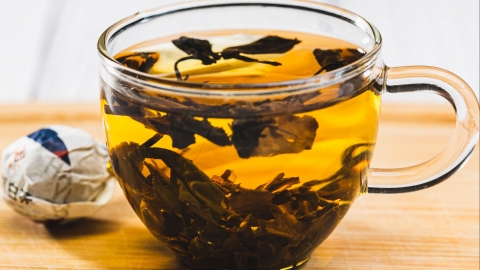What kind of tea is good for the kidneys?
Under normal circumstances, drinking teas such as Lycium barbarum (goji berry) tea, mulberry fruit tea, Cuscuta chinensis (dodder) seed tea, Eucommia ulmoides (du zhong) tea, and Epimedium (horny goat weed) tea are beneficial for kidney health. Detailed analysis is as follows:

1. Lycium barbarum (Goji Berry) Tea
Lycium barbarum tea has effects of nourishing the liver and kidneys, improving vision, enriching blood, and enhancing immunity. It can help alleviate symptoms caused by kidney deficiency, such as soreness and weakness in the waist and knees, dizziness, tinnitus, and fatigue.
2. Mulberry Fruit Tea
Mulberry fruit tea helps nourish blood, enrich yin, promote body-fluid production, moisten dryness, and support liver and kidney function. It can help regulate symptoms of blood deficiency and liver or kidney insufficiency.
3. Cuscuta Chinensis (Dodder) Seed Tea
Cuscuta chinensis tea can nourish the kidneys and liver, consolidate essence, reduce urination, and relieve diarrhea. It is effective in alleviating symptoms such as seminal emission, bedwetting, and soreness and weakness in the waist and knees caused by kidney deficiency.
4. Eucommia Ulmoides (Du Zhong) Tea
Eucommia ulmoides tea helps nourish the liver and kidneys and strengthen tendons and bones. It has certain therapeutic effects on symptoms such as soreness and weakness in the waist and knees and frequent urination caused by kidney deficiency.
5. Epimedium (Horny Goat Weed) Tea
Epimedium tea can tonify kidney yang and strengthen tendons and bones. It has certain therapeutic effects on symptoms such as impotence, seminal emission, and kidney yang deficiency.
Although these teas are beneficial for the kidneys, their effectiveness varies from person to person. If kidney-related symptoms persist or do not improve, please seek timely medical attention to avoid delaying treatment. Additionally, tea consumption should be moderate, as excessive intake may burden the kidneys.






